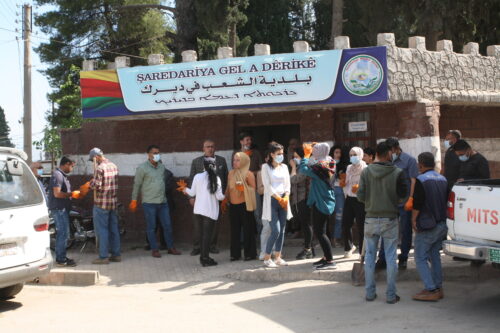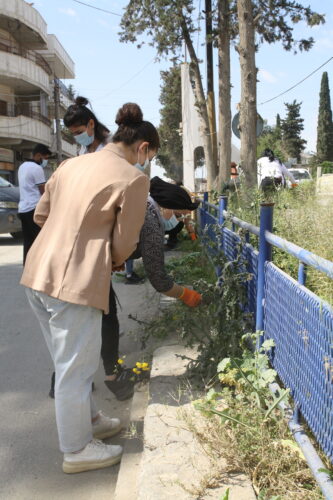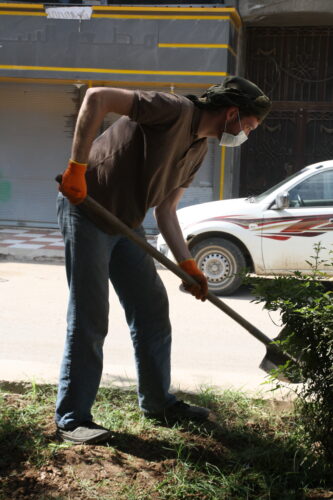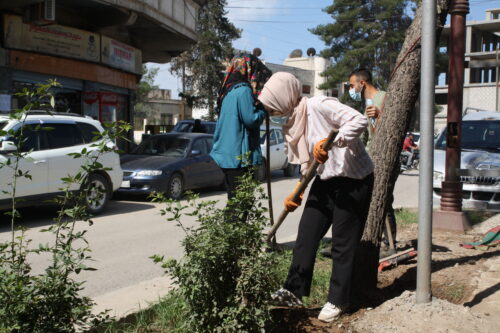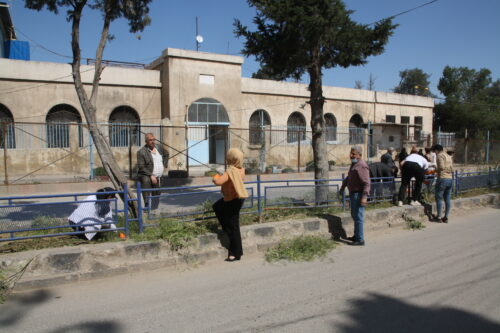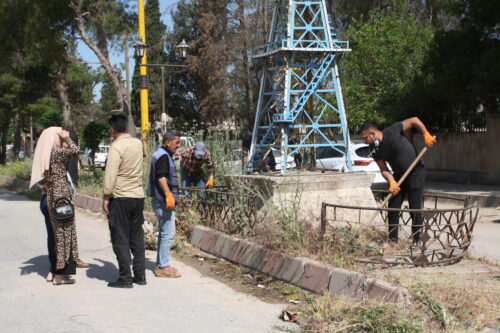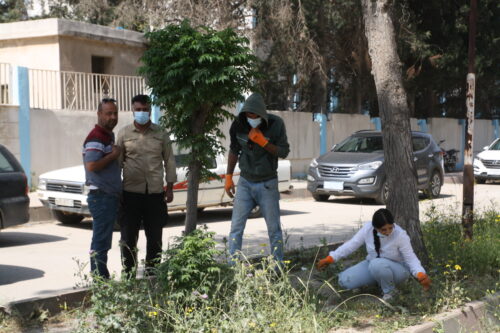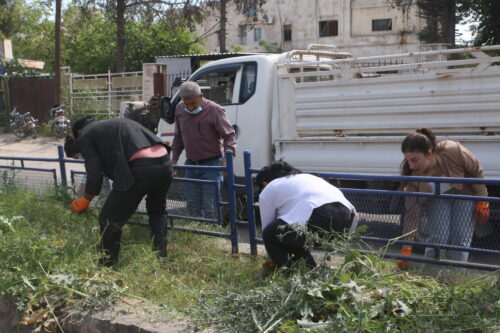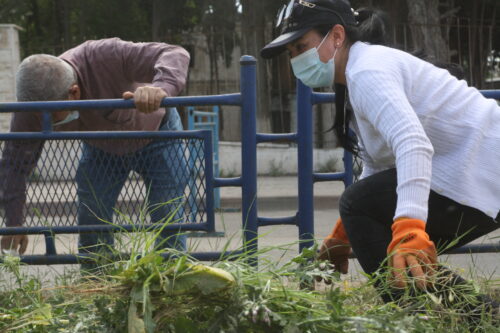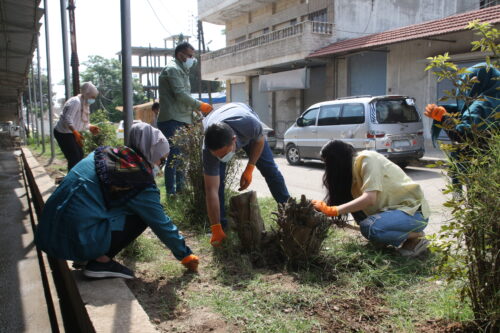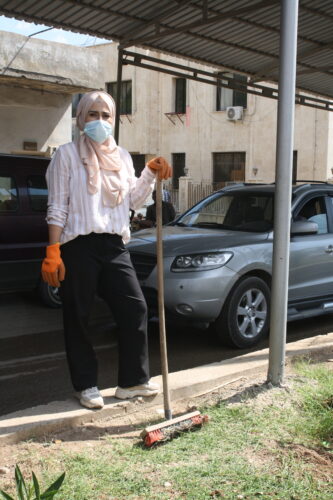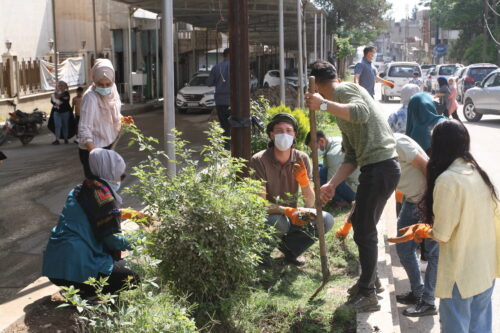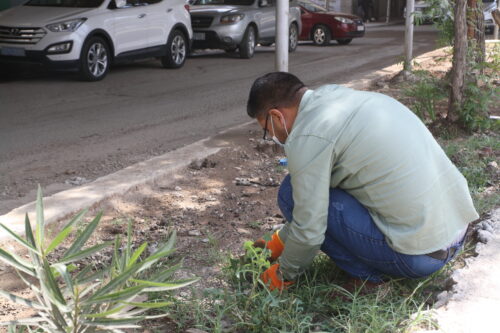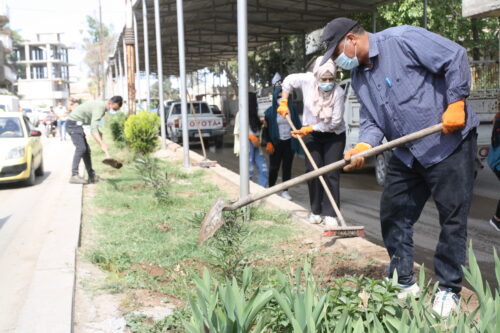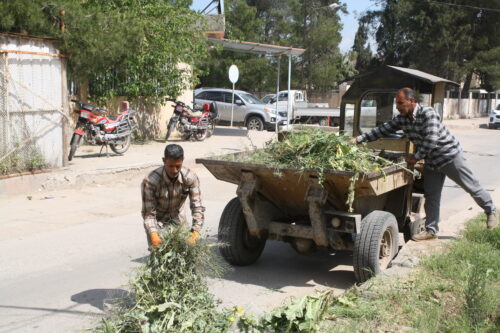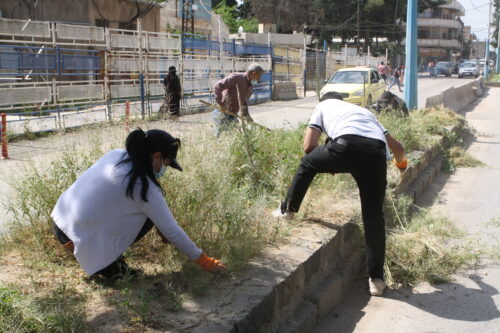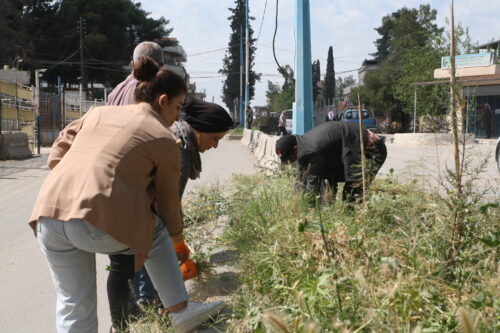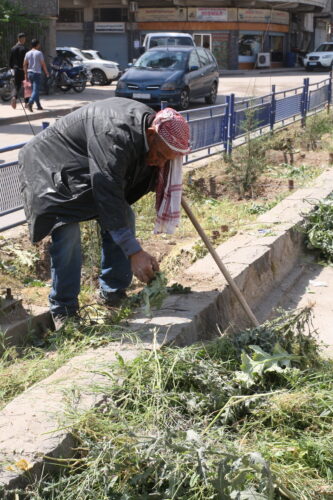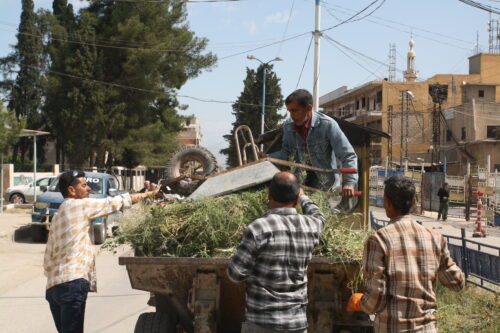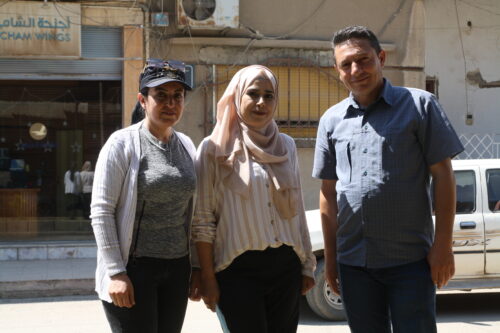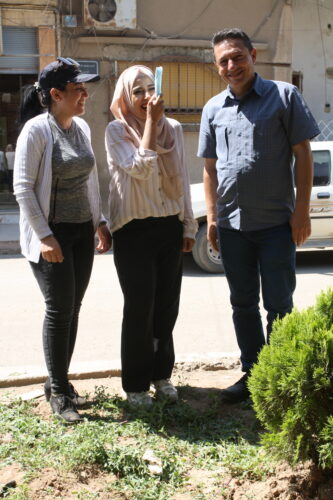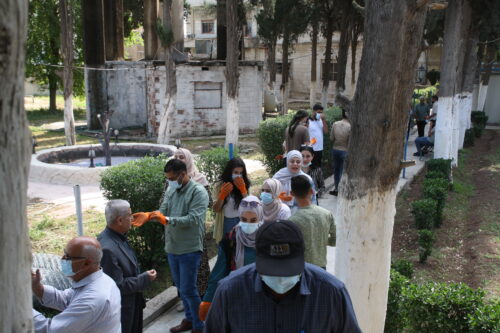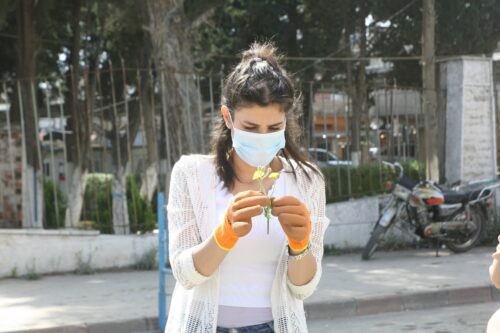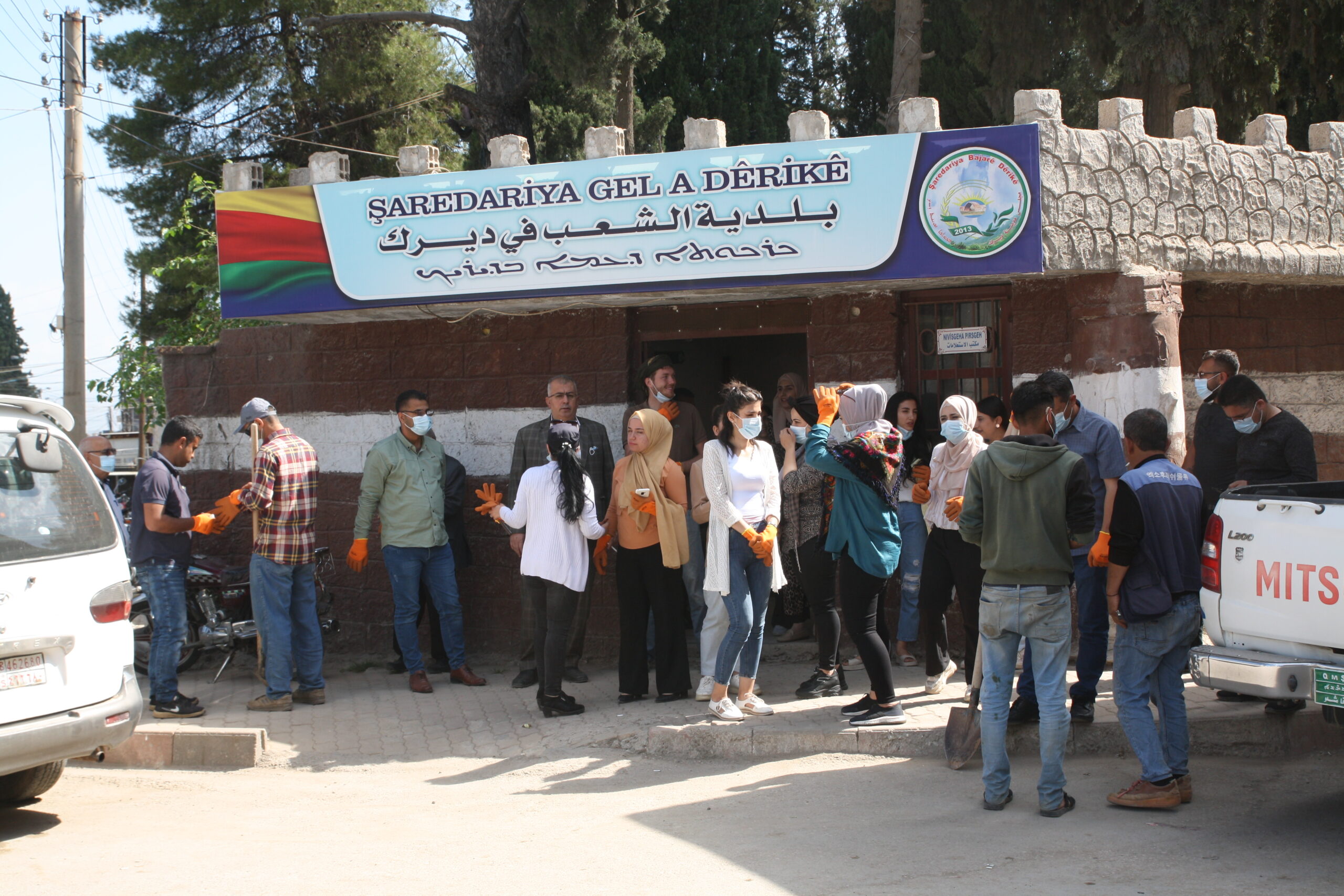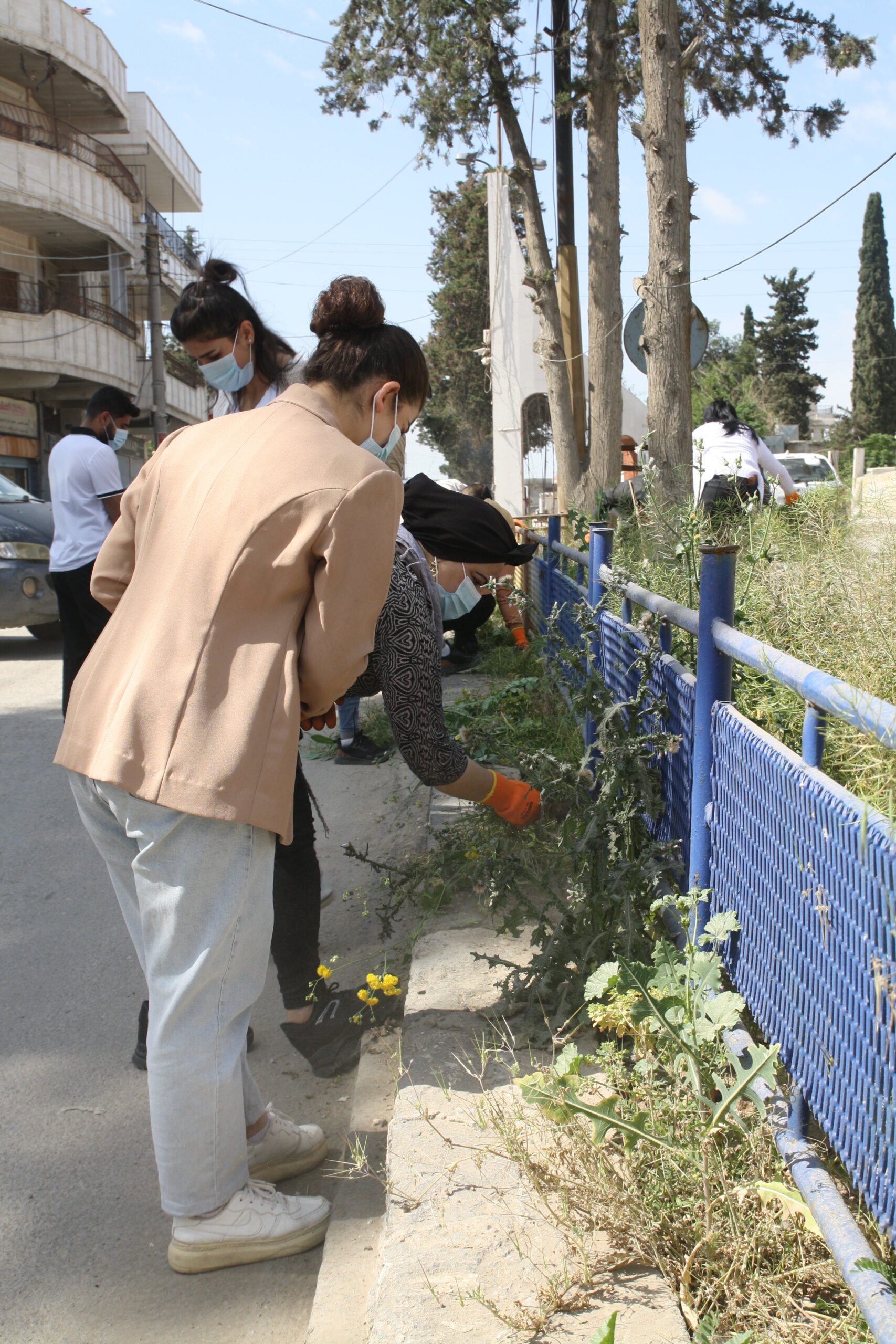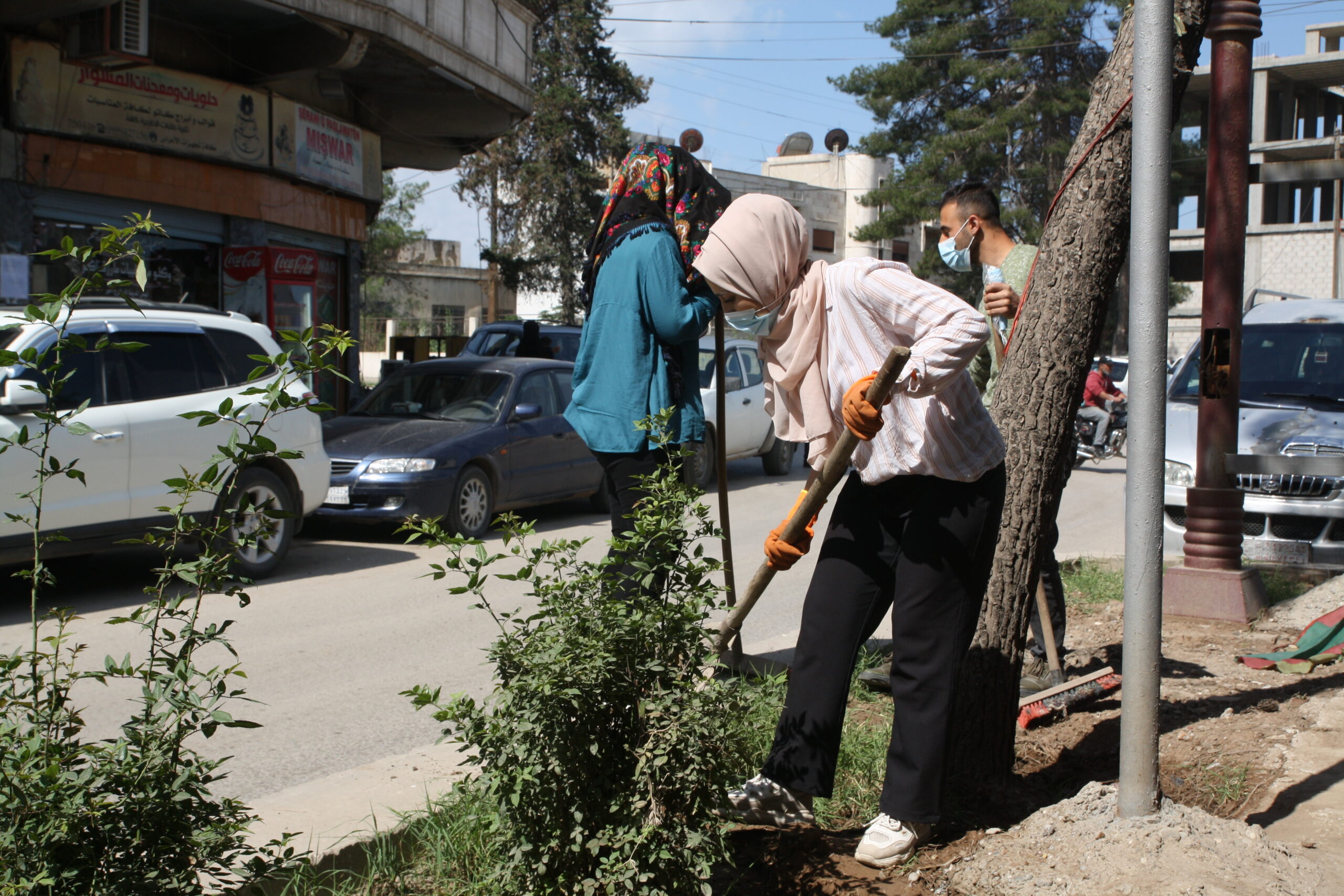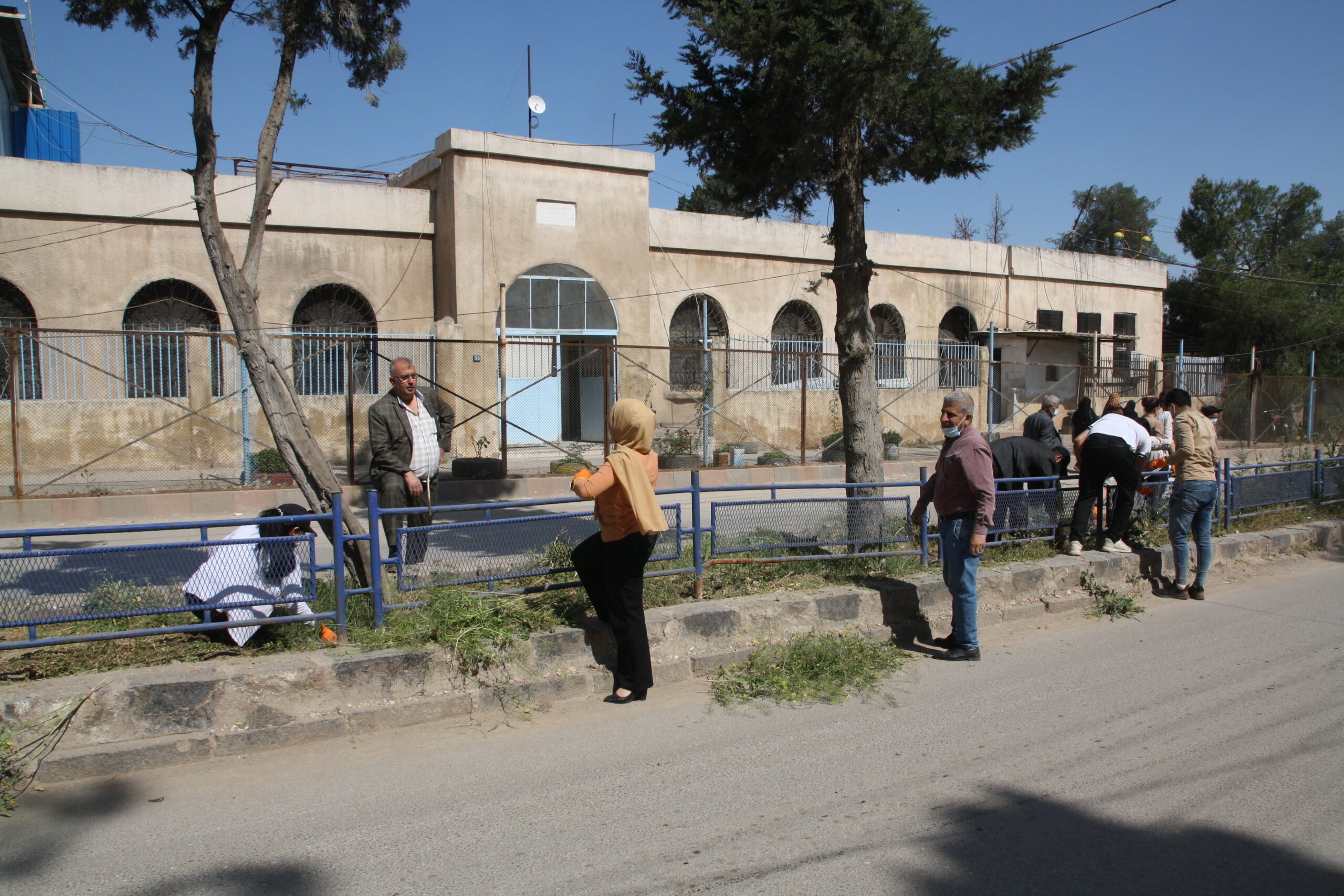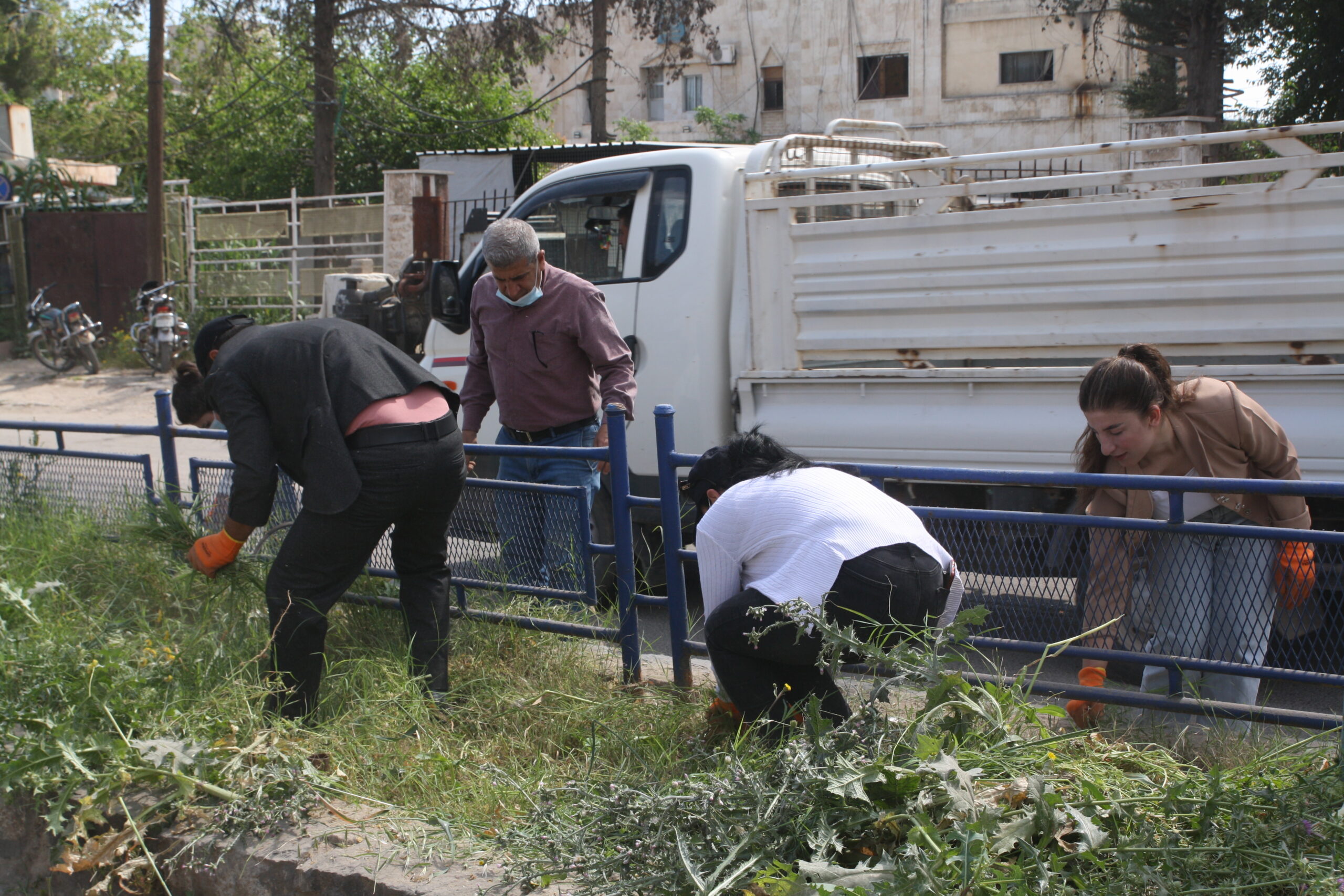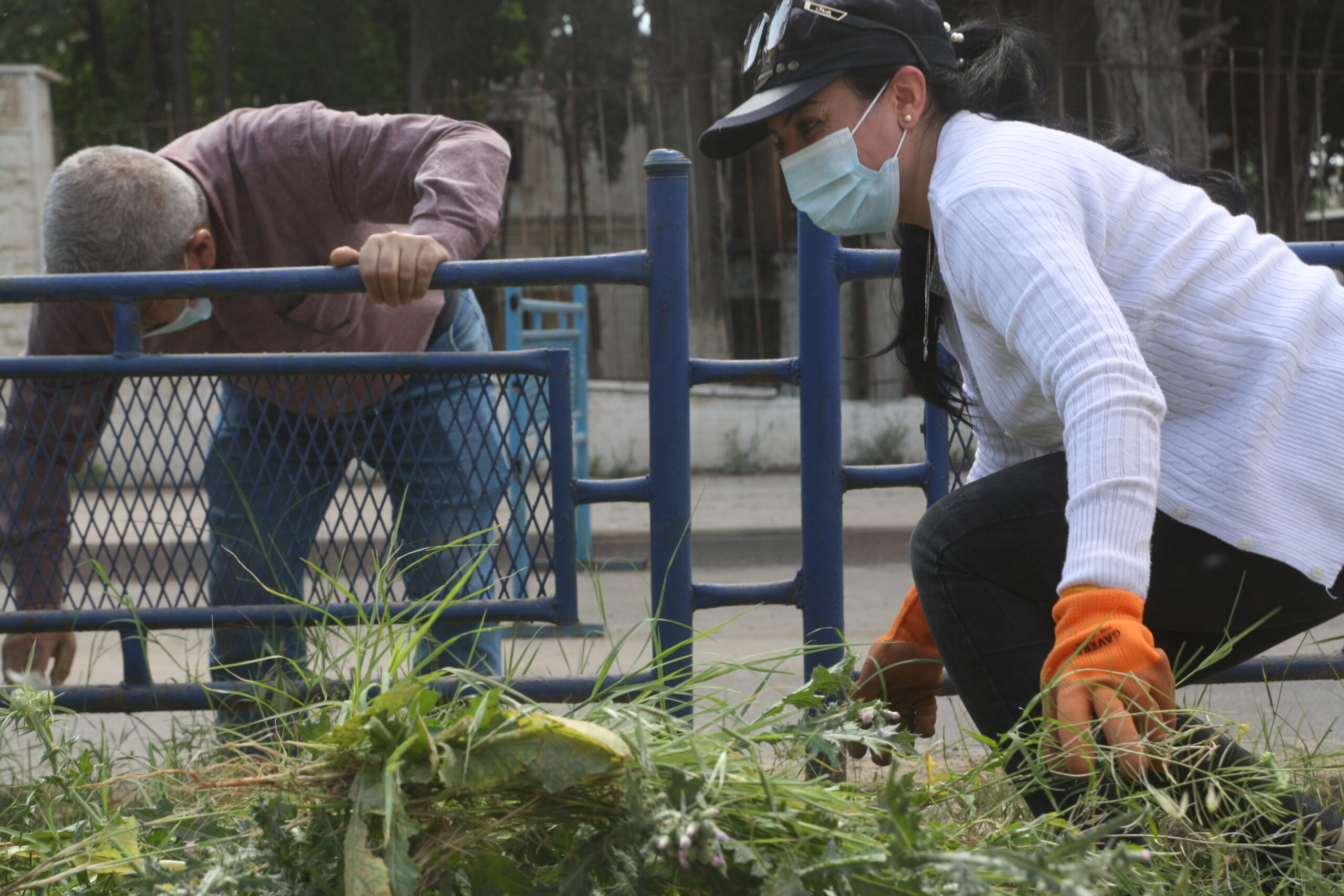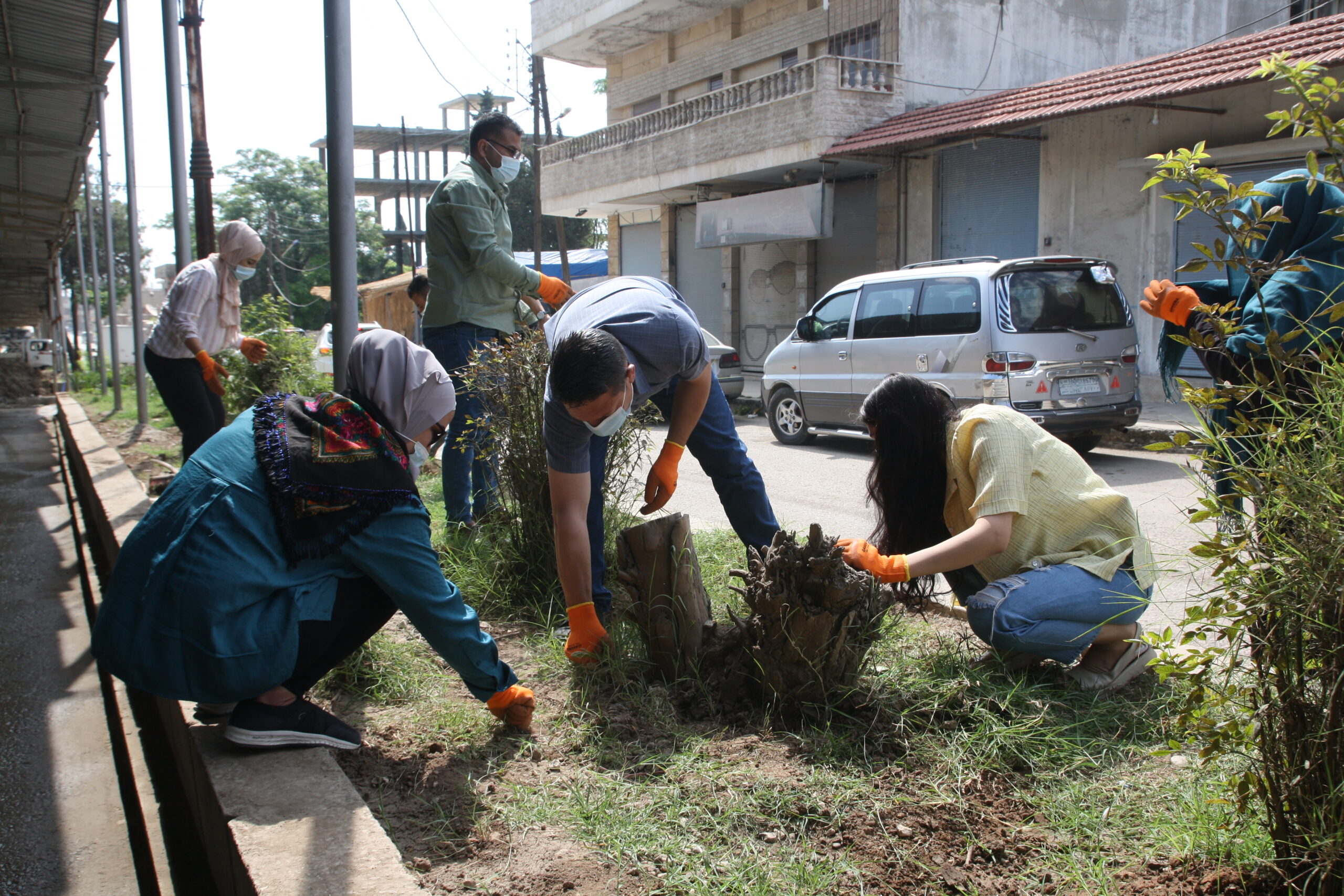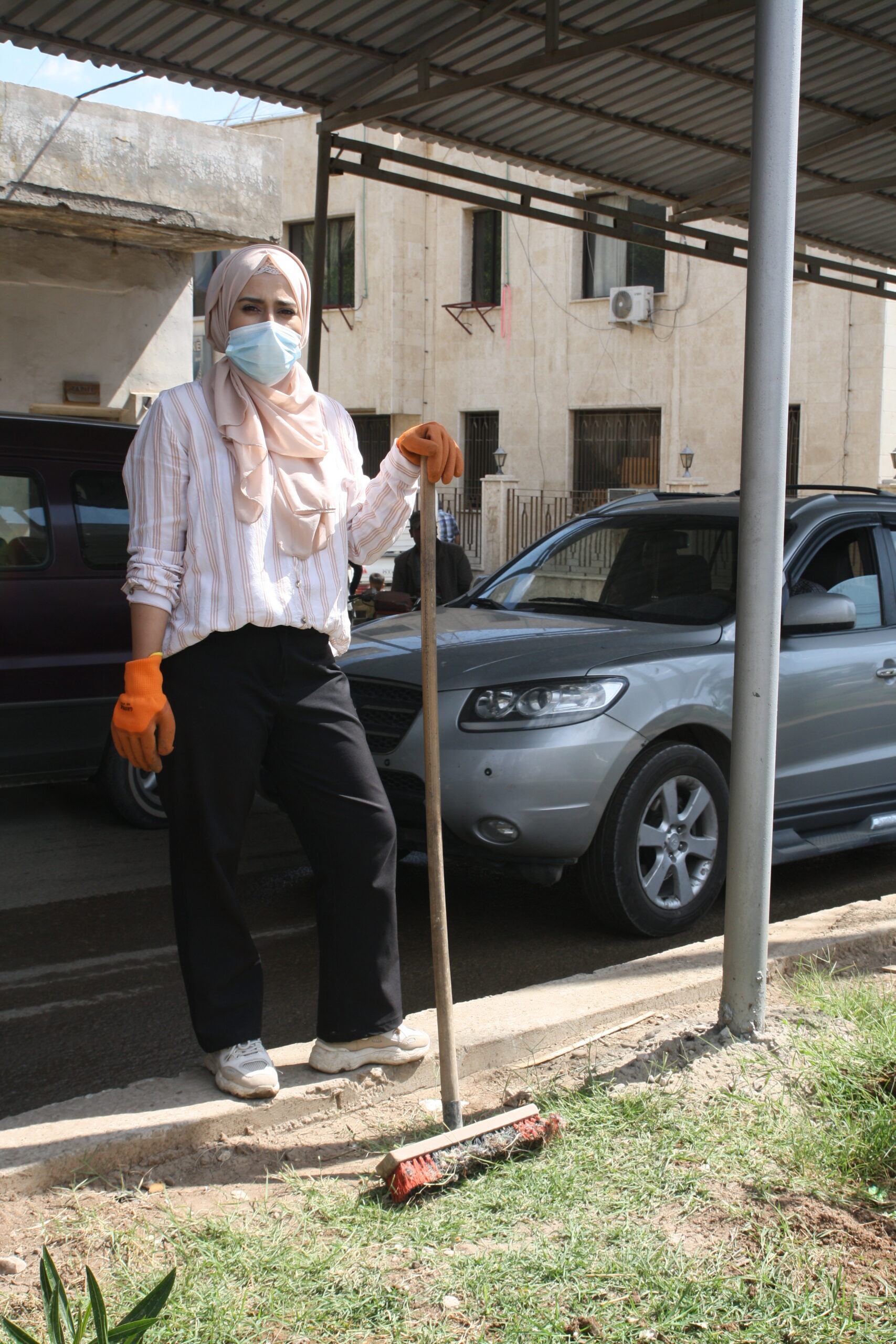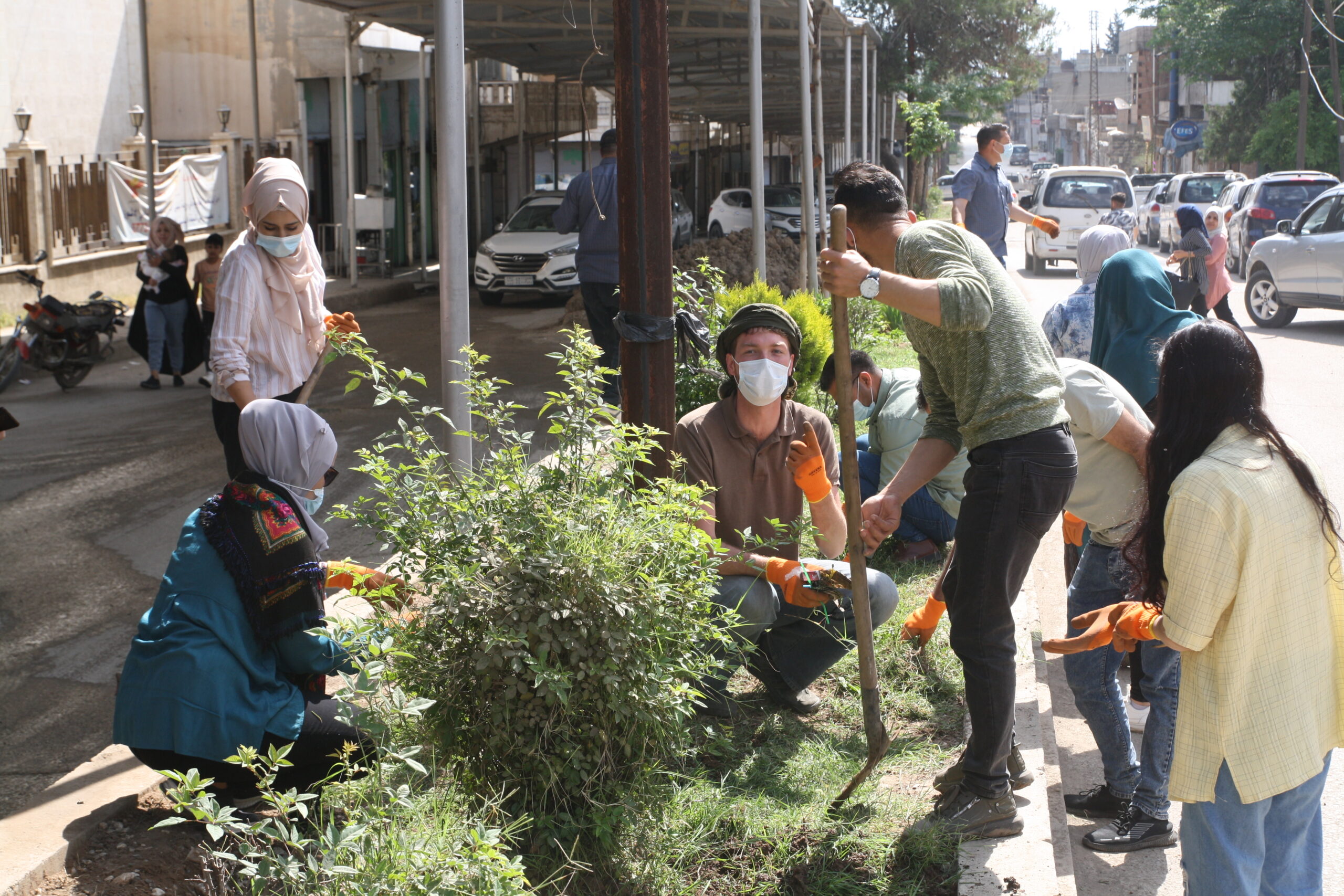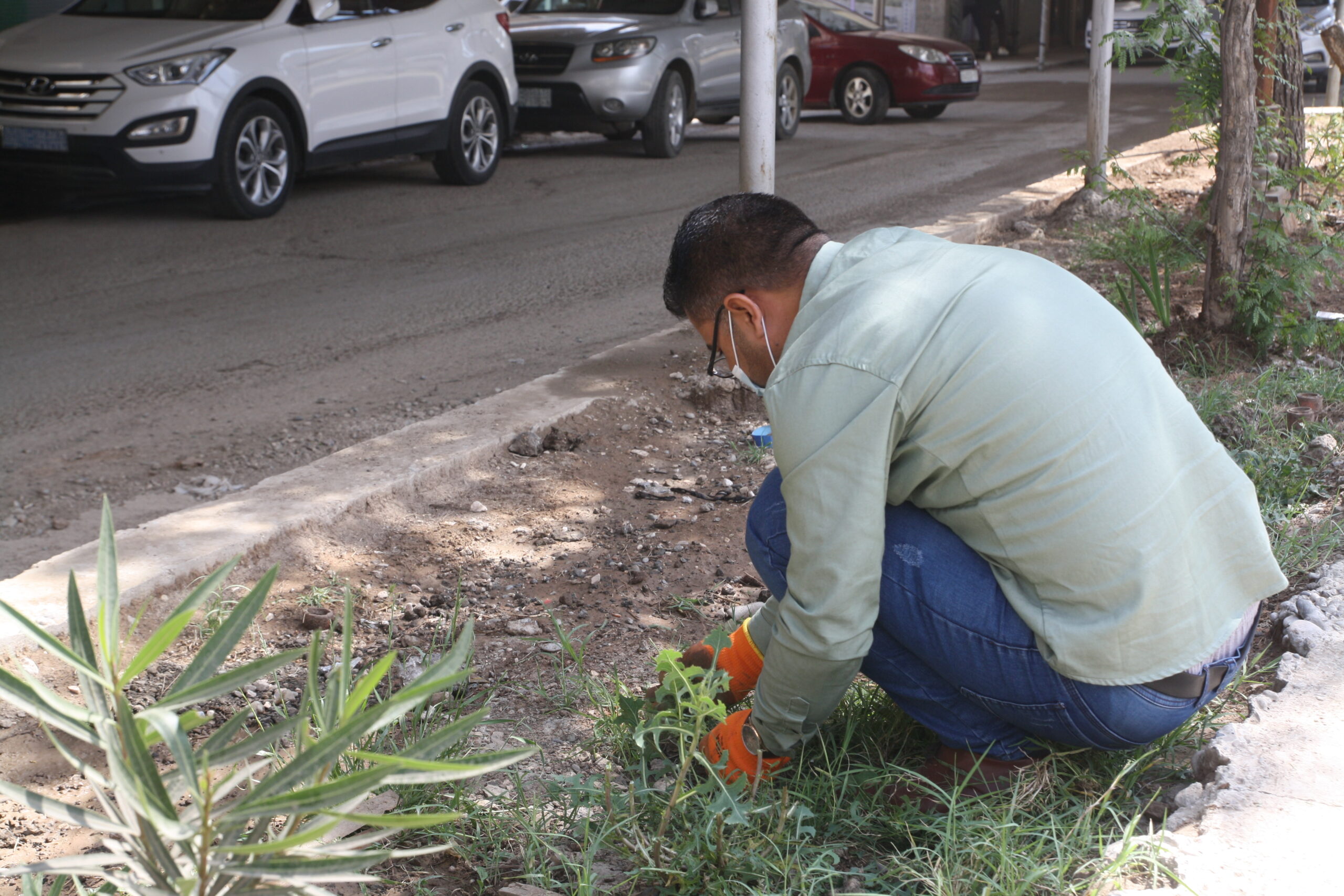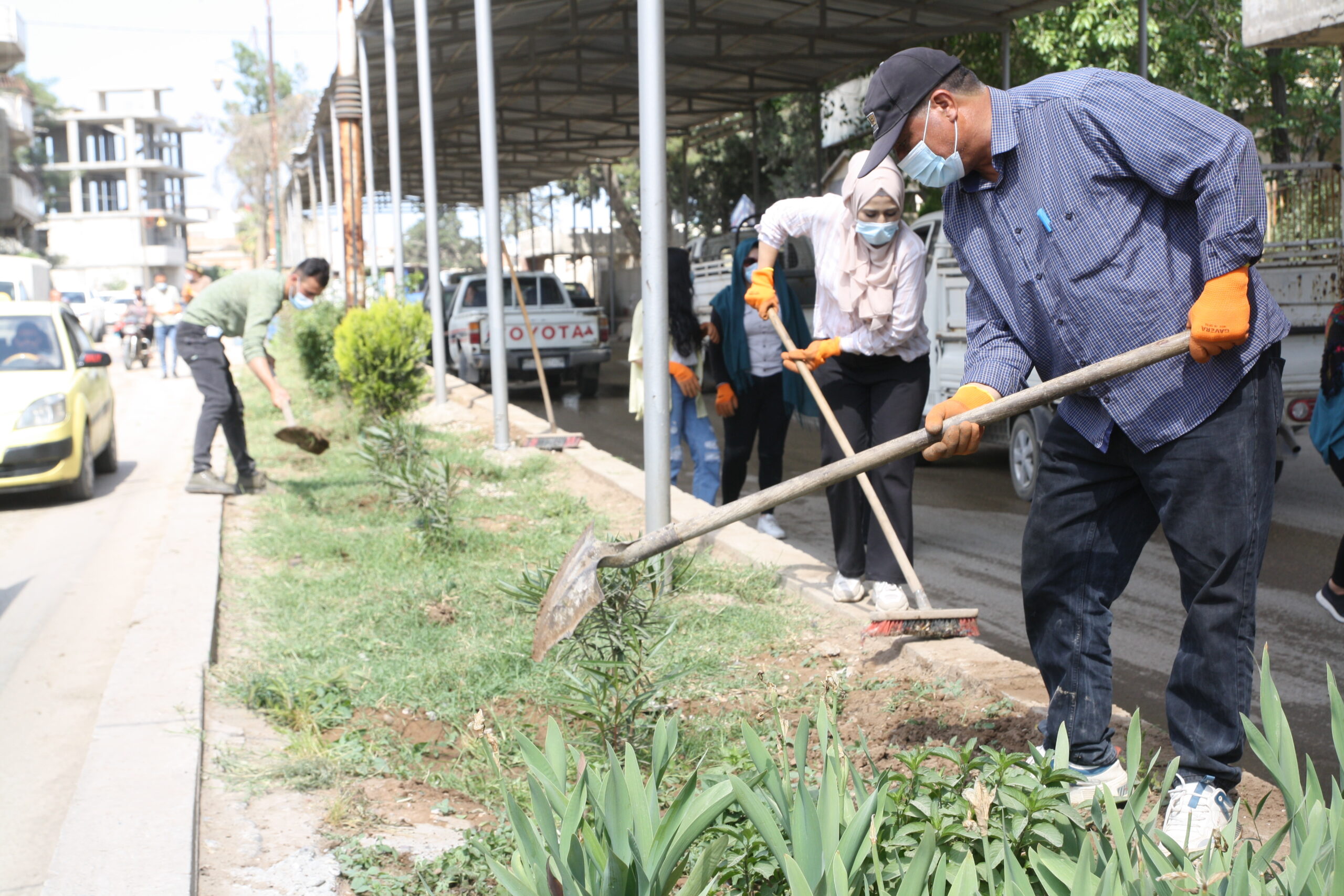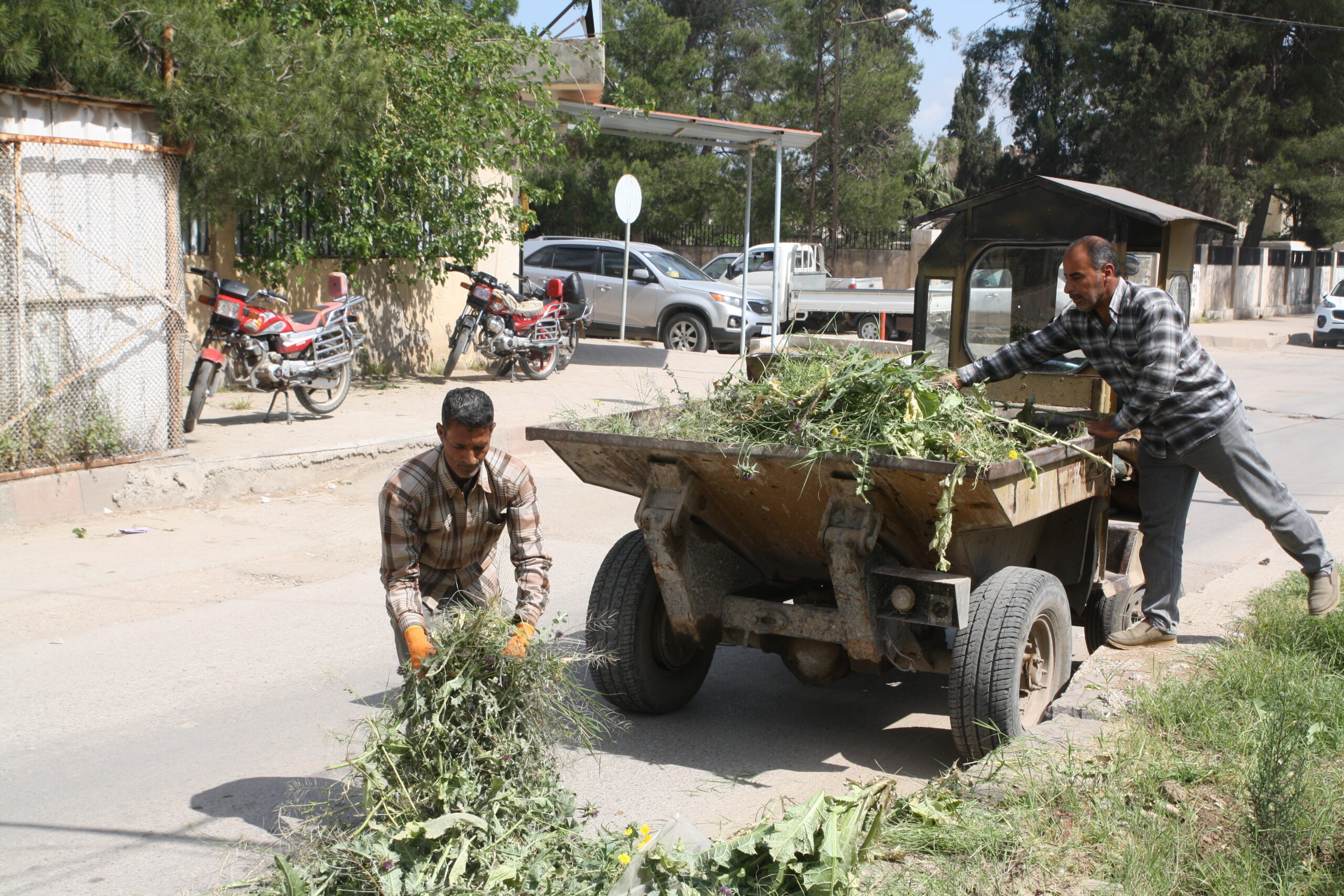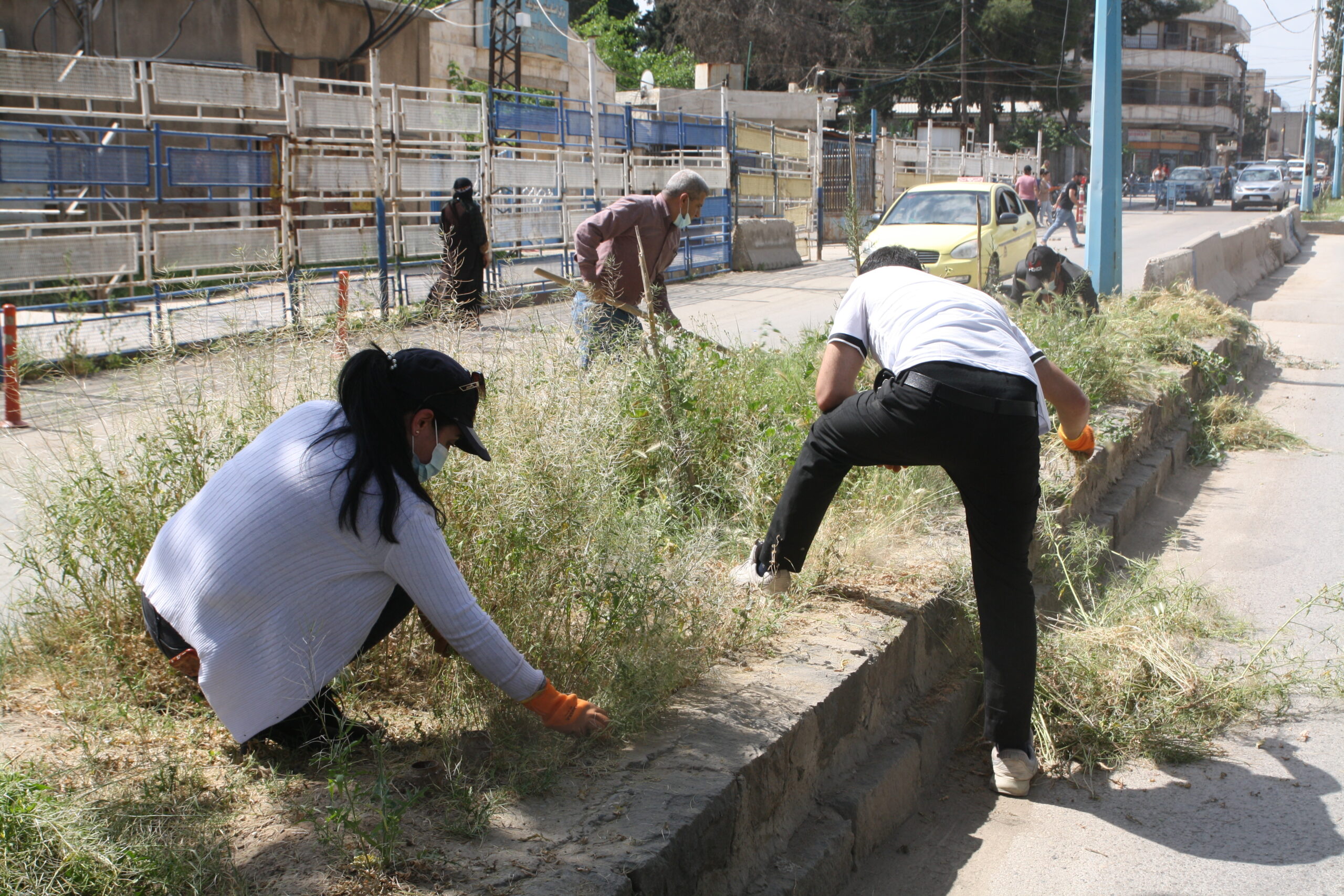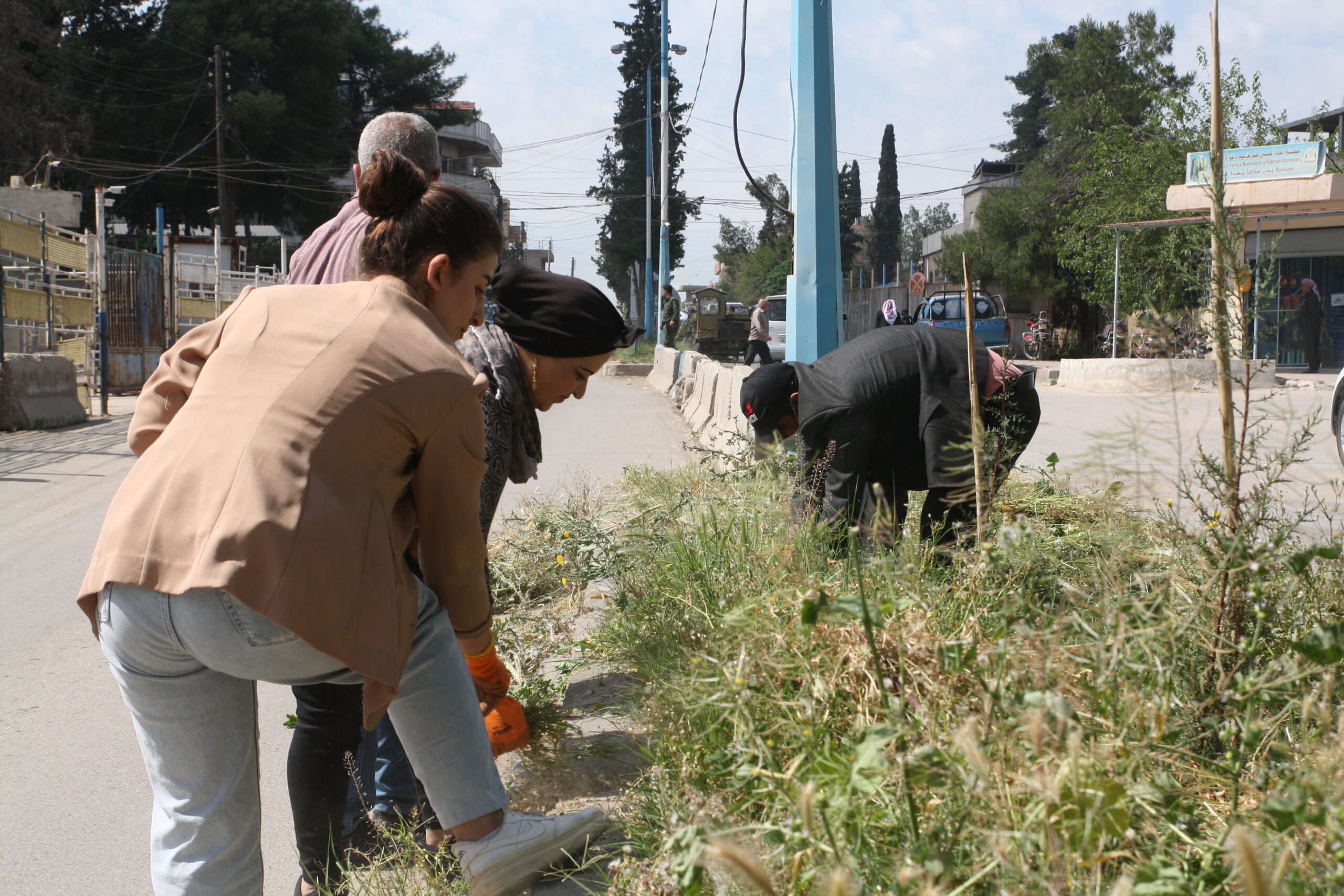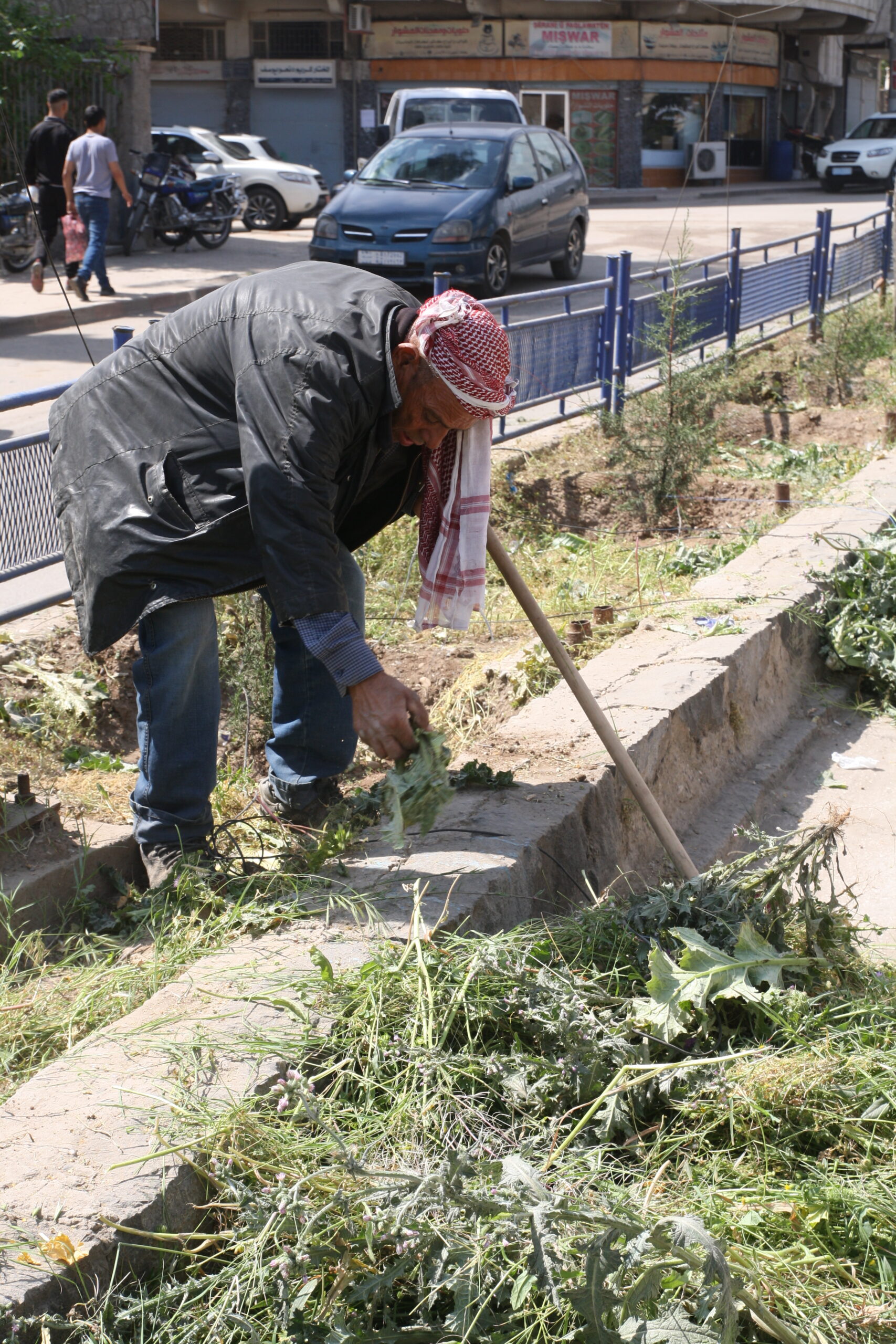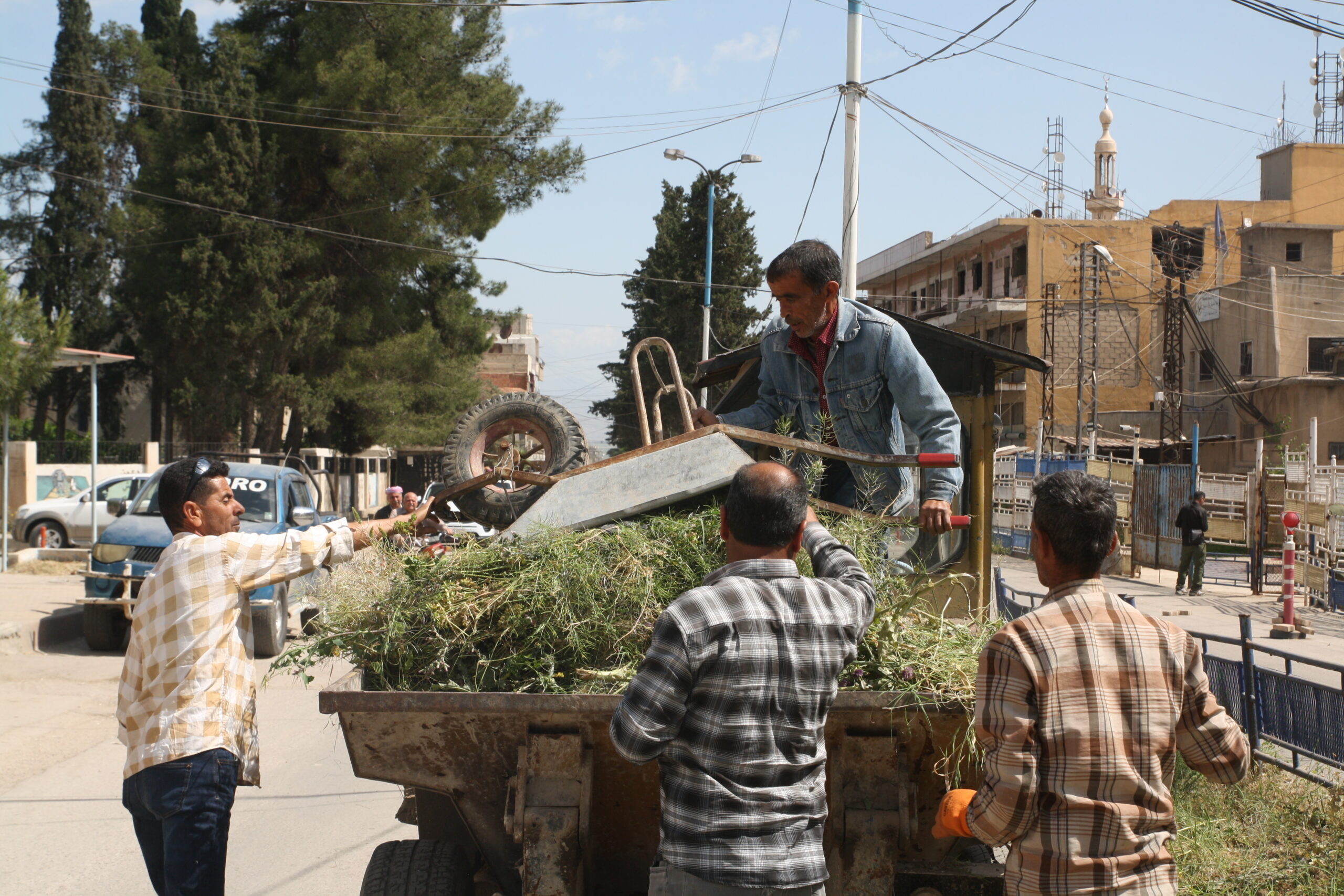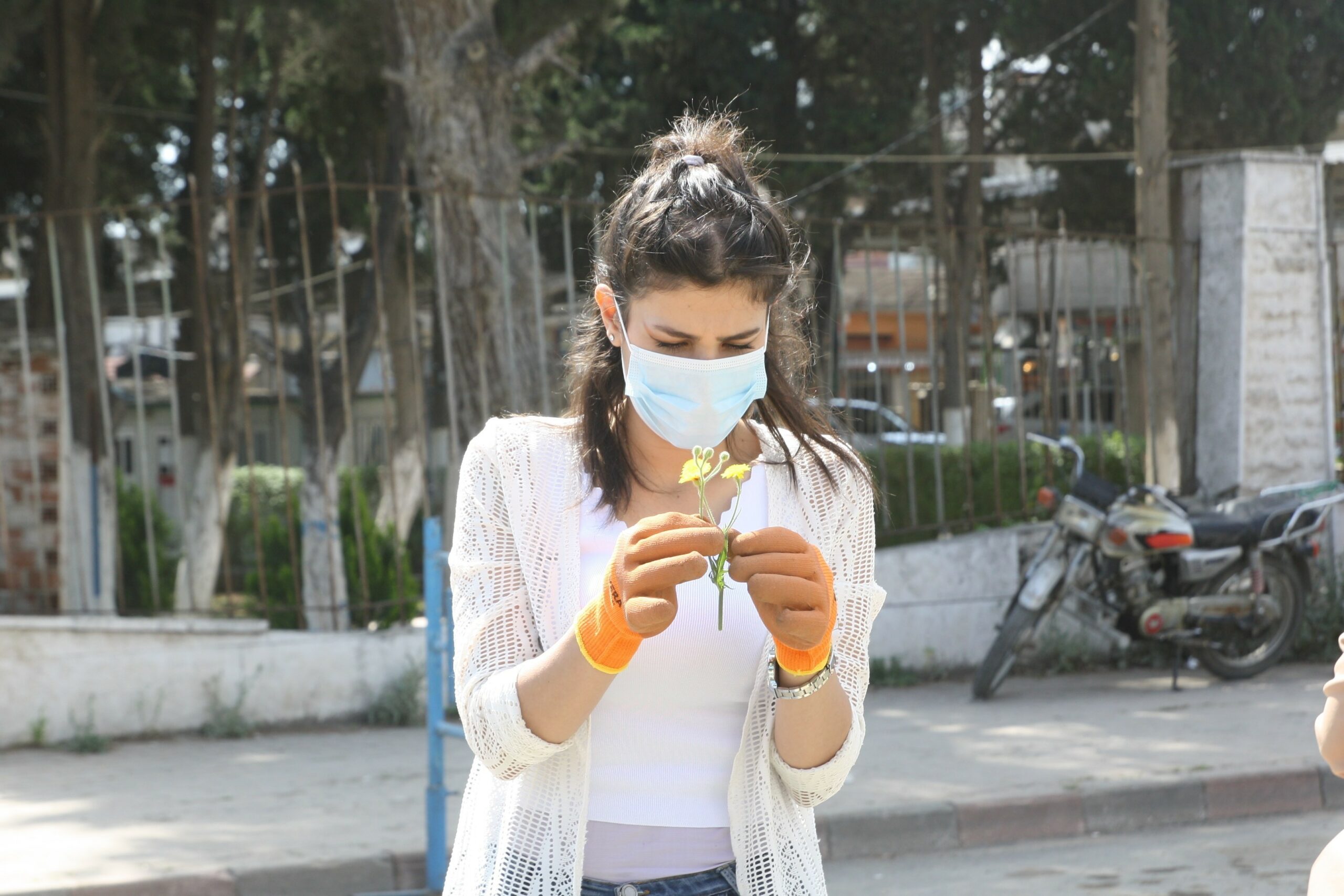The members of the municipality’s administration in Dêrik leave their desks, their conference-rooms and their paper-work behind once a month. They join the street-workers in cleaning up the city as well as caring about the plants along the roads.
Most of us, Internationalists, come from countries where the state’s administration is very cold and bureaucratic. The people in Rojava had to deal for decades with the civil institutions of the Syrian state, full of corruption and hostility, especially towards Kurdish people. The society had to adapt and develop certain characteristics in order to benefit, or even just survive, in such a system. The members of the municipalities now, try to build something radically different, according to the principles of democratic confederalism. The main problem they face is to resolve these old mentalities and approaches towards the administrative institutions in the city. Many of the people that work now in the places of the Autonomous Administration worked before in the institutions of the Syrian Regime. They are teachers, clerical staff, engineers and electricians. They are people with knowledge and skills, urgently needed to keep a city running. Especially after working for years and years, in a very centralist state-administration and learning to carefully watch what you say or who you criticize, it is very hard to change one’s approach. Several mechanisms and initiatives try to deal with this. The system of co-chairs, with which a female and a male responsible for every decisive position, is a meaningful example. The responsible for the parks and the trees in Dêrik is a young Arab women. She is directing a large group of male workers every day. The men, as well as she herself, had to struggle a lot with this uncommon roles, and they still do. Neither-less situations like this, which were unimaginable before the revolution, are more and more perceived as normal.
The monthly action of the municipality’s staff is a further example of the effort to build an administration that is not apart from society, but connected to its communal values and morals.
